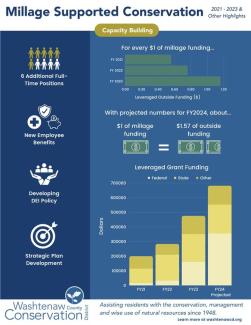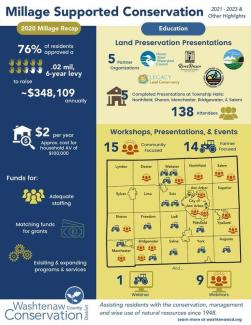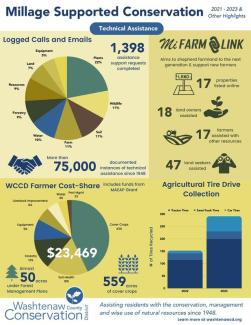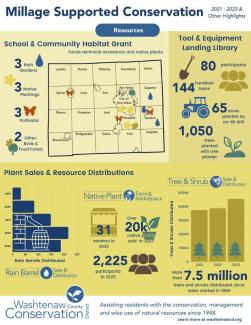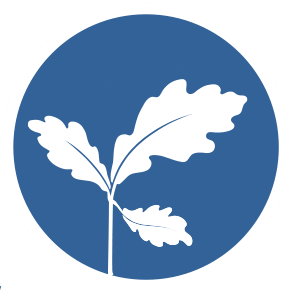
Making the Millage Work for You
Initially Approved in 2019, Renewed in 2024
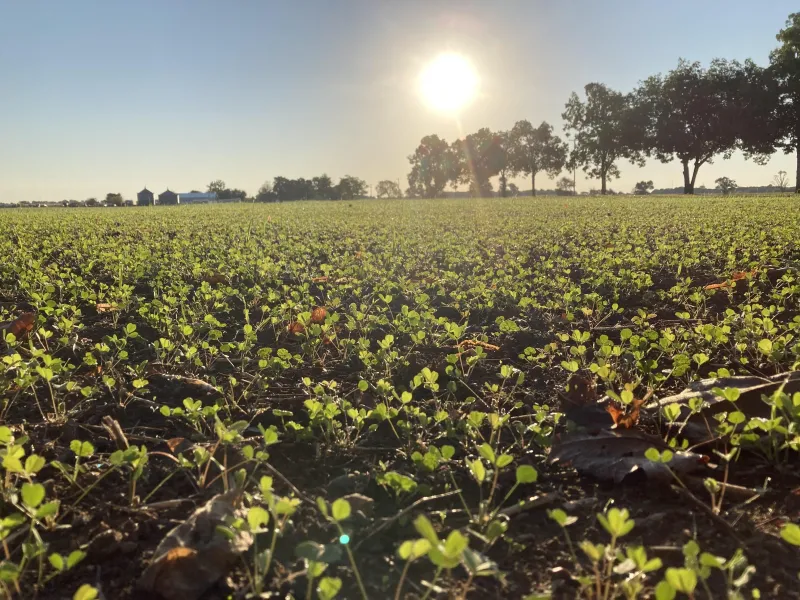
On August 4th, 2019, 76% of Washtenaw County voters approved a .02 mil, 6-year levy to raise an estimated $348,109 for the Washtenaw County Conservation District annually. The estimated cost to a household with an assessed value of $100,000, was $2.00 per year.
Washtenaw County voters renewed the millage on August 6th, 2024, with this same .02 mil, 6-year levy, for an estimated $449,818 for the WCCD annually. The millage allows the WCCD to continue serving the conservation needs of Washtenaw County.
What does the WCCD do?
How does the WCCD protect soil, increase tree planting, and help sequester carbon?
Through annual resource distributions of trees & shrubs, native plants, and equipment & tools for Conservation purposes. Over 7.5 million trees and plants that have been planted as a result of WCCD’s work since 1948. We're coordinating the development of a statewide farm verification program through the Michigan Climate Smart Farm Project to help producers adapt and mitigate climate change impacts while increasing productivity, including establishing many conservation practices that stabilize soil, protect water, and sequester carbon.
How does the WCCD protect clean water?
Through the Michigan Agricultural Environmental Assurance Program (MAEAP), an innovative, non-regulatory, proactive program that helps farms of all sizes and all commodities voluntarily prevent pollution risks.
How does the WCCD empower community action?
The WCCD provides seasonal educational workshops on how to implement conservation on the ground through educational offerings geared toward backyard hobbyists and agricultural producers.
How does WCCD preserve native ecosystems/habitat and farmland?
Provide education, outreach and some mitigation assistance around invasive species in Washtenaw County (e.g. Stiltgrass, Japanese knotweed, Frogbit, etc) that threaten the health of our natural areas. We have partnered with other conservation organizations to present in-person at Townships about how to assess, manage, and protect private land and have developed an online landowner toolkit. We are also helping to grow MIFarmLink, a statewide land linking tool to shepherd farmland to the next generation of farmers and ensure Michiganders have robust and resilient local agriculture and food security.
How does WCCD help you find the proper resources for your conservation needs?
The WCCD serves as a one-stop location for conservation information through our website, site-specific assistance from Conservation experts on how to address needs, planning assistance for various programs and connecting residents and landowners to local, state and federal cost-share opportunities.
